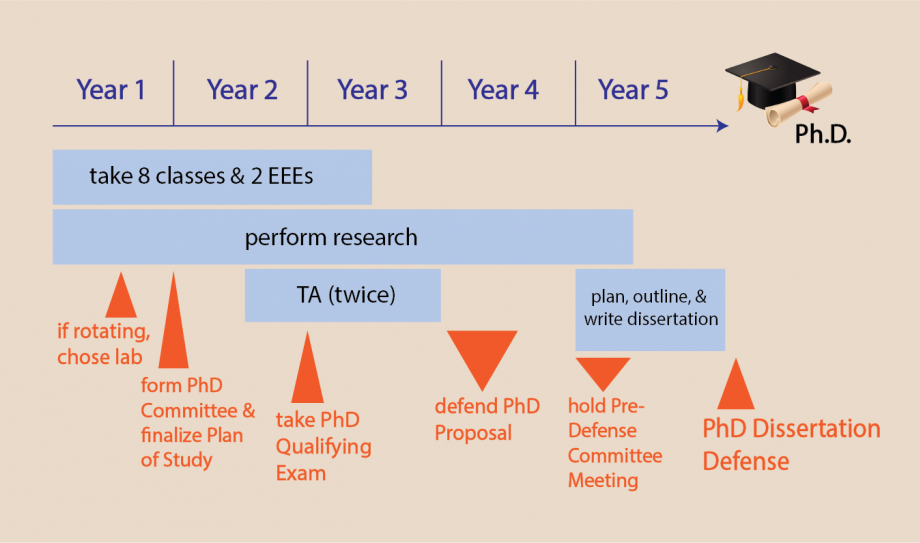Ph.D. in Biomedical Engineering
A Ph.D. is for those who know they want to pursue a research career in academia, industry, or government, although there are many additional career paths for Ph.D. graduates.
The Doctor of Philosophy (Ph.D.) in Biomedical Engineering is a mentored opportunity to become an expert on a specific research topic and train for a career involving independent research. This means identifying a void in knowledge with your Ph.D. advisor and Ph.D. Committee members, devising a plan to fill the void rigorously and executing that plan all the way through analysis, interpretation and transmission of results to the broader scientific community. The Ph.D. dissertation communicates the gap in knowledge by synthesizing the existing literature, fills the gap with interpretable and actionable results and discusses the broader implications and future directions of the research topic.
The Ph.D. degree requires 24 graded credits of course work past the bachelor’s degree, plus two ELECTIVE EDUCATIONAL EXPERIENCES (EEEs). The timeline for a Ph.D. depends on research progress and the choice to pursue intervening activities, such as laboratory rotations and PROFESSIONAL DEVELOPMENT PROGRAMS. Normally, Ph.D. candidates defend their dissertation in 5–6 years.
All Ph.D. students are supported with full tuition, fees, health insurance, and a stipend. These are paid by graduate research assistantships from the sponsoring laboratory, graduate teaching assistantships, predoctoral FELLOWSHIPS secured independently by the student, departmental and institutional fellowships, and TRAINING GRANTS from the NIH and other federal agencies, and private sector and foundation support. A Ph.D. is for those who know they want to pursue a research career in academia, industry, or government, although there are ADDITIONAL CAREER PATHS that Ph.D. graduates can take.

The information contained on this website is for informational purposes only. The Undergraduate Record and Graduate Record represent the official repository for academic program requirements. These publications may be found here.